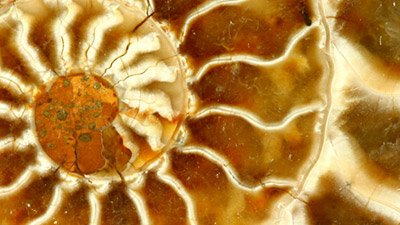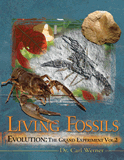
Well-Preserved Octopus
If you needed an “exhibit A” of evidence for catastrophic fossil formation, this is it.
News Source
- ScienceDaily: “Cretaceous Octopus with Ink and Suckers—the World's Least Likely Fossils?”
Paleontologists have found the fossil imprints of five octopuses in Cretaceous sediments in Lebanon, and three of the octopuses belong to new species. For the paleontologists (but probably not for many of the rest of us), the find is cause for celebration, as octopuses are a fossil rarity—with “fewer specimens than octopuses have legs,” ScienceDaily reports.
What’s remarkable is the state of preservation of the fossils, which include “traces of muscles . . . rows of suckers,” and even “traces of the ink and internal gills” in some of the specimens. But what usually happens when an animal dies, especially one that lacks a skeleton? The report states:
The body of an octopus is composed almost entirely of muscle and skin, and when an octopus dies, it quickly decays and liquefies into a slimy blob. After just a few days there will be nothing left at all. And that assumes that the fresh carcass is not consumed almost immediately by hungry scavengers.
No wonder the lead author on the report, Freie University Berlin’s Dirk Fuchs, called the fossils “sensational” and “extraordinarily well preserved”! The relatively poor fossil record of octopuses, combined with these incredibly preserved specimens, repudiate the old-earth model of fossilization and provide powerful evidence for a catastrophic Flood that quickly buried these octopuses in sediments (before they could decay or be scavenged). The find also forces scientists to revise the origin of octopuses “by tens of millions of years.”
The other point of interest for creationists is that while one of the fossils is “almost indistinguishable from living species,” according to Fuchs, the others have fleshy fins on their bodies, unlike modern octopuses. Although the report calls this discovery “important evolutionary information,” it actually informs us of the correctness of the creation model: modern octopuses are either identical to their fossil ancestors, or they have fewer features (and, thus, less genetic information).
In a similar story this week, the Associated Press reports on dinosaur fossils preserved in mud. To whet your appetite, one paleontologist’s comment: “Without the correct environmental conditions, these fossils would not have been found in nearly pristine condition—uncrushed or worn down.”
Further Reading
- Why Shouldn’t Christians Accept Millions of Years?
- Unlocking the Geologic Record
- Get Answers: The Flood, Fossils
For More Information: Get Answers
Remember, if you see a news story that might merit some attention, let us know about it! (Note: if the story originates from the Associated Press, FOX News, MSNBC, the New York Times, or another major national media outlet, we will most likely have already heard about it.) And thanks to all of our readers who have submitted great news tips to us. If you didn’t catch all the latest News to Know, why not take a look to see what you’ve missed?
(Please note that links will take you directly to the source. Answers in Genesis is not responsible for content on the websites to which we refer. For more information, please see our Privacy Policy.)
Recommended Resources

Answers in Genesis is an apologetics ministry, dedicated to helping Christians defend their faith and proclaim the good news of Jesus Christ.
- Customer Service 800.778.3390
- Available Monday–Friday | 9 AM–5 PM ET
- © 2026 Answers in Genesis





